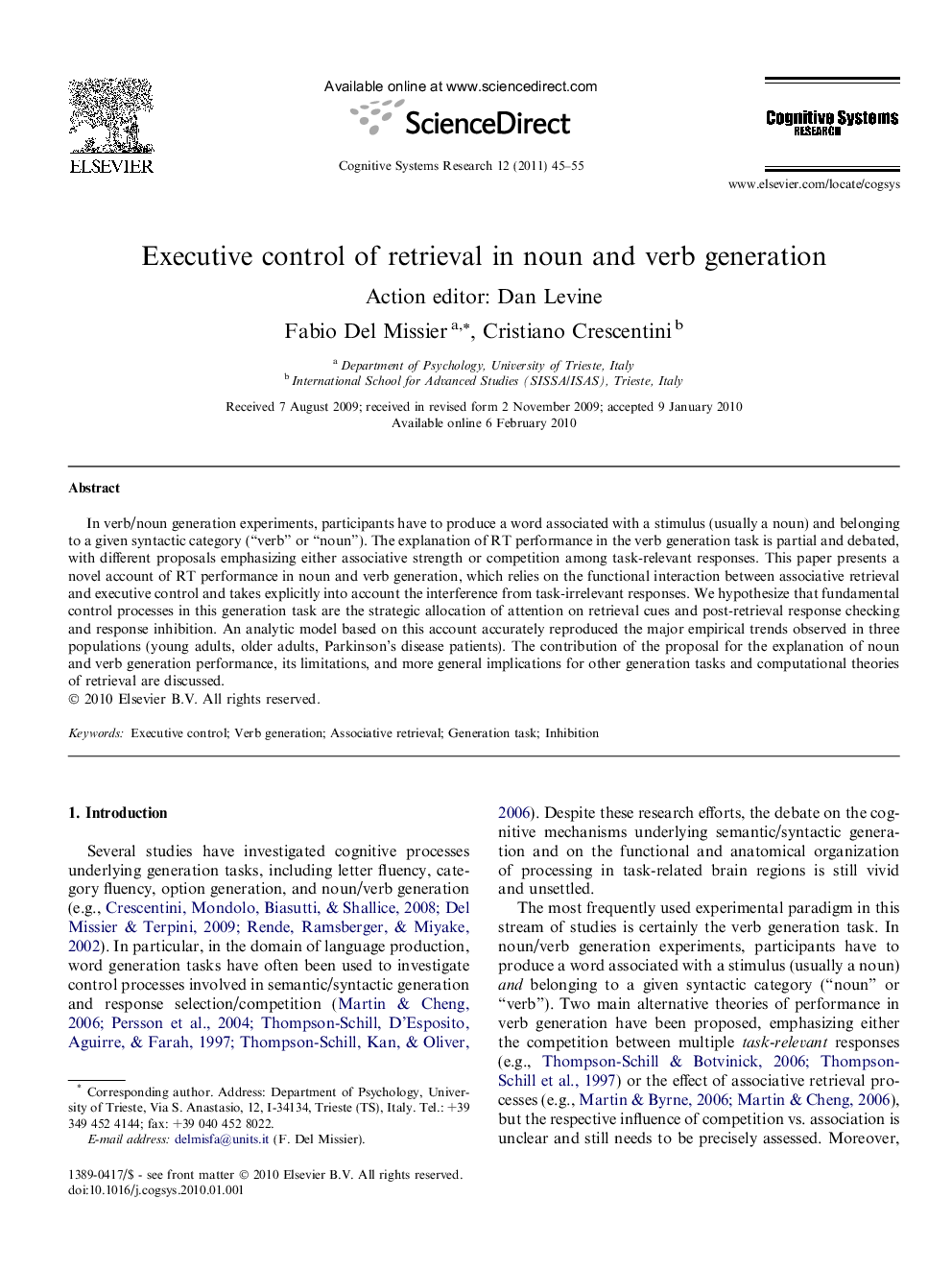| Article ID | Journal | Published Year | Pages | File Type |
|---|---|---|---|---|
| 378499 | Cognitive Systems Research | 2011 | 11 Pages |
In verb/noun generation experiments, participants have to produce a word associated with a stimulus (usually a noun) and belonging to a given syntactic category (“verb” or “noun”). The explanation of RT performance in the verb generation task is partial and debated, with different proposals emphasizing either associative strength or competition among task-relevant responses. This paper presents a novel account of RT performance in noun and verb generation, which relies on the functional interaction between associative retrieval and executive control and takes explicitly into account the interference from task-irrelevant responses. We hypothesize that fundamental control processes in this generation task are the strategic allocation of attention on retrieval cues and post-retrieval response checking and response inhibition. An analytic model based on this account accurately reproduced the major empirical trends observed in three populations (young adults, older adults, Parkinson’s disease patients). The contribution of the proposal for the explanation of noun and verb generation performance, its limitations, and more general implications for other generation tasks and computational theories of retrieval are discussed.
